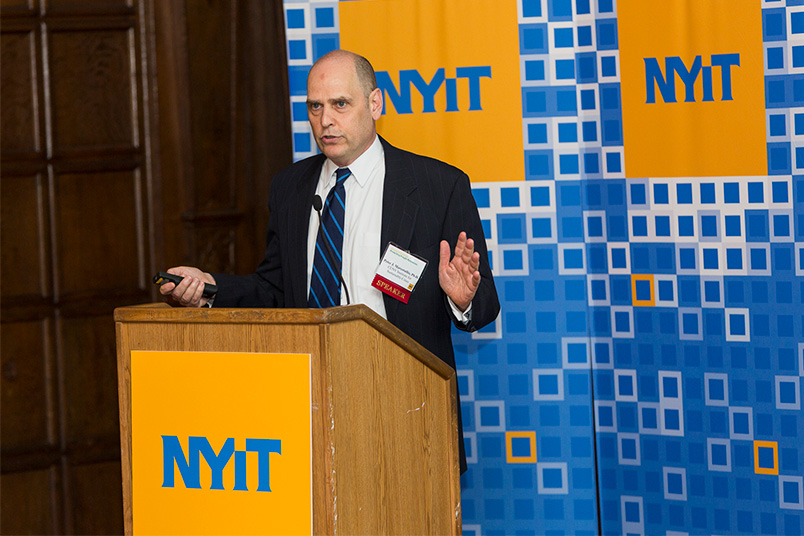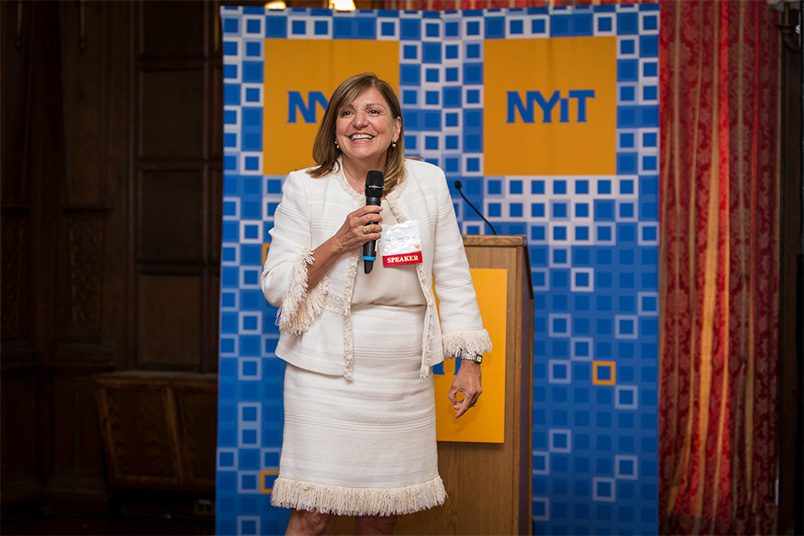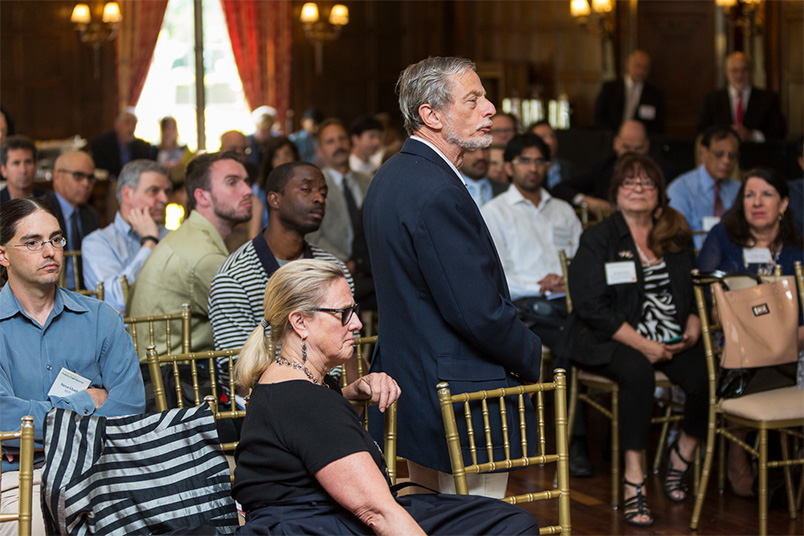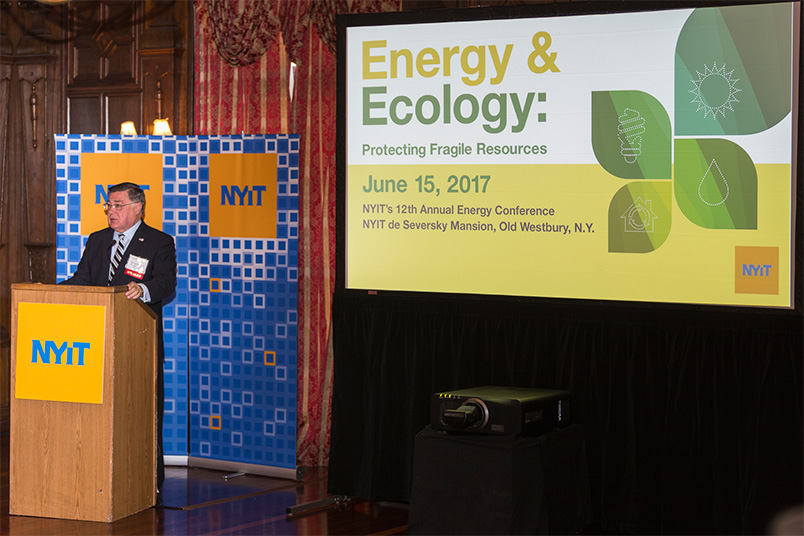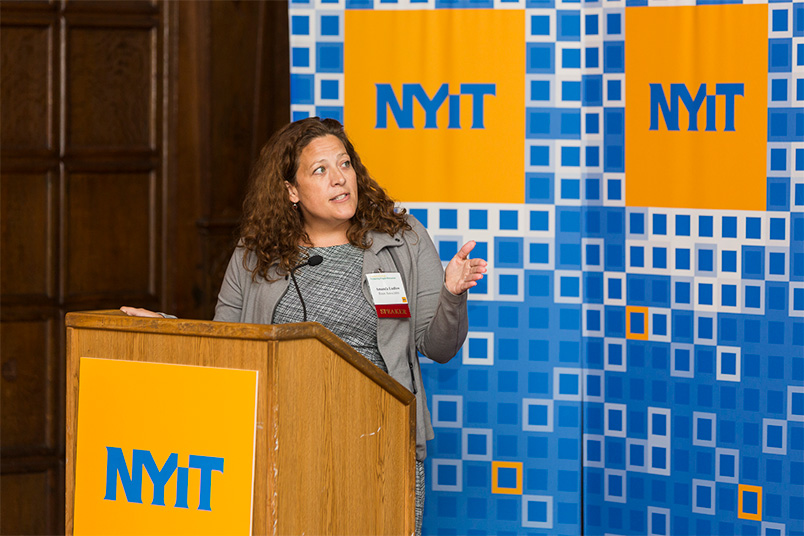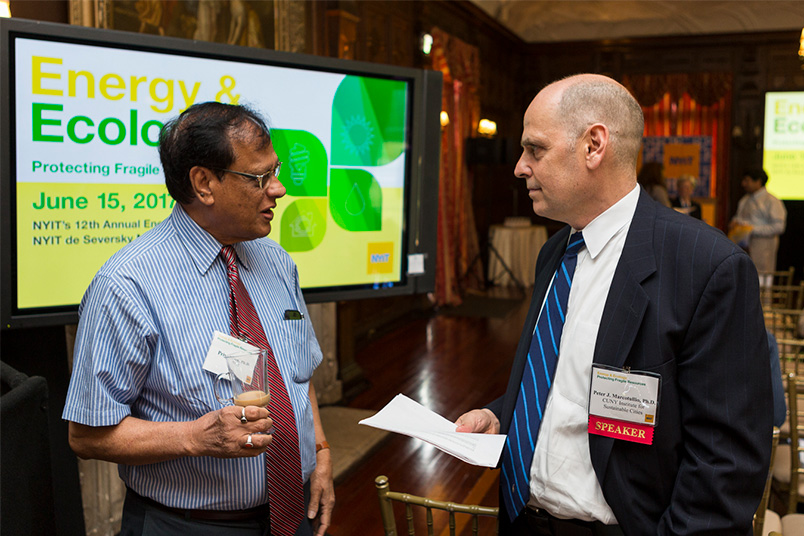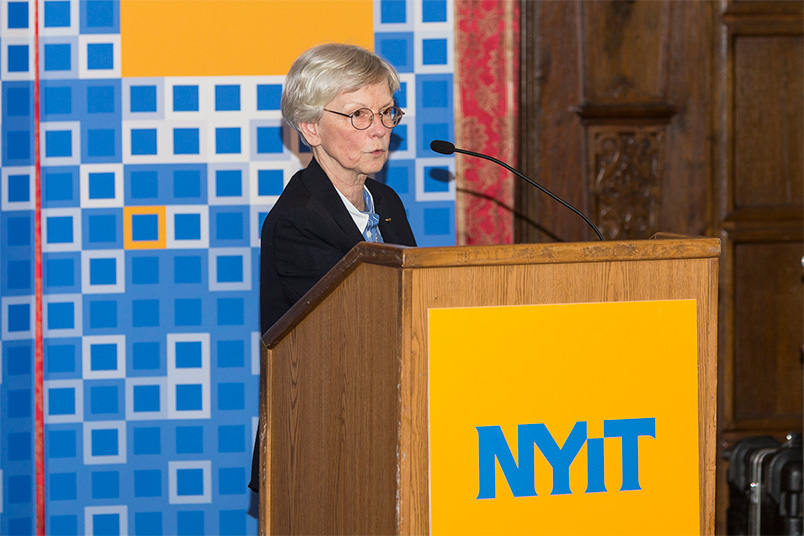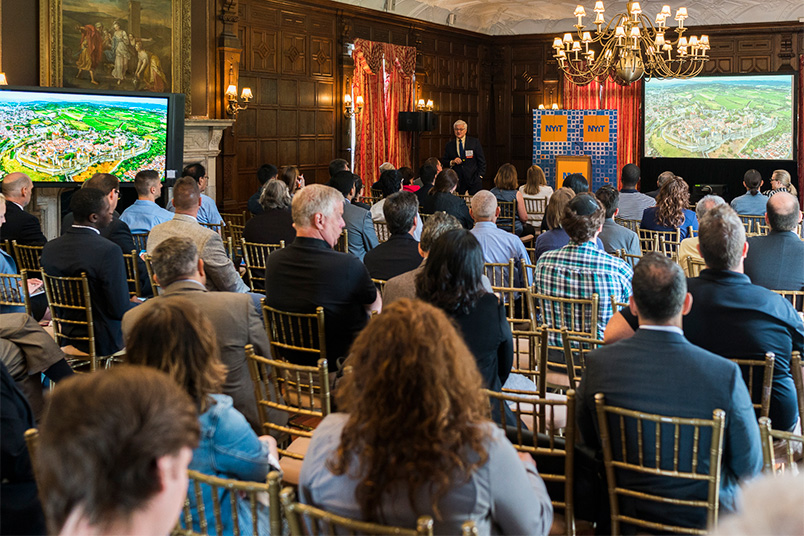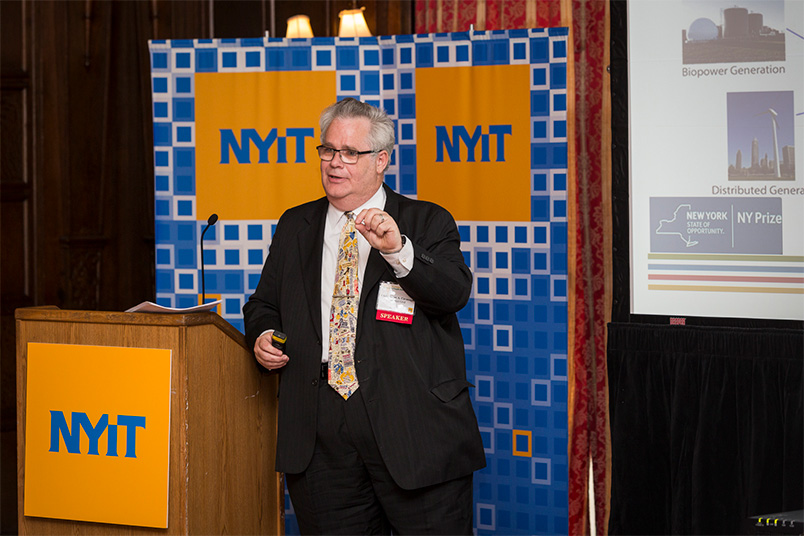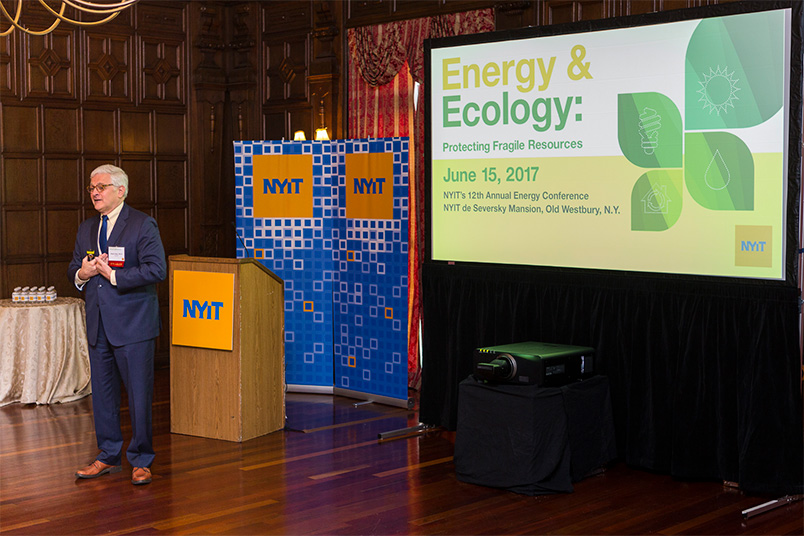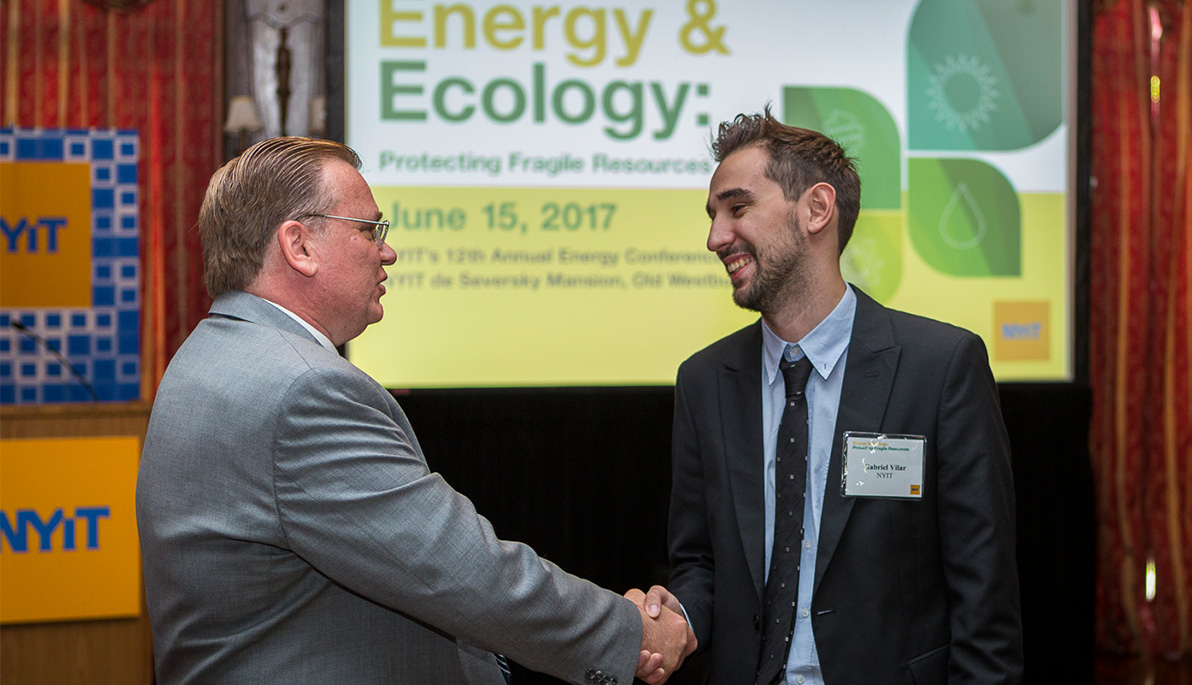
Conservation, Preservation, and Mitigation at 12th Annual Energy Conference
June 20, 2017
Photo: NYIT Professor and Energy Conference Chair Robert Amundsen greets a conference attendee.
Alternative energy sources, conservation, policy, and resilient design were among the broad-based solutions discussed at Energy and Ecology: Protecting Fragile Resources, NYIT’s 12th Annual Energy Conference on June 15. Hosted by the School of Engineering and Computing Sciences, the event brought together industry, academic, and government experts to address challenges facing endangered natural resources. While some presenters focused on conservation as a way to mitigate the disastrous effects of climate change on the environment, others pointed to advanced technologies and alternative approaches to energy and the built environment.
Associate Professor Robert Amundsen, Ph.D., director of NYIT’s graduate program in energy management, kicked off the conference by welcoming and introducing of Dean of School of Engineering and Computer Sciences Nada Anid, Ph.D., NYIT President Hank Foley, and the first speaker of the day, Christopher A. Cavanagh of National Grid.
Cavanagh described myriad alternative energy projects that are achieving tangible results for consumers and the environment, including solar, geothermal, electric vehicles, smart grid, and renewable energy. “We are fortunate to live in a state which has some of the most innovative and ambitious programs for responding to the threat of climate change,” he said.
One such official, Brookhaven Town Supervisor Ed Romaine, warned that while developing alternate energy sources is important, it is also critical to preserve green spaces and maintain quality of life for local communities. He cited growing opposition to a proposed solar farm on the former Shoreham nuclear plant in his district that alternatively could be used as a park. “Developers of alternative energy sources should focus on developing the built environment,” he said.
In her presentation about NYIT's Entrepreneurship and Technology Innovation Center (ETIC), Anid invited utilities along with large and small businesses to join the college’s innovation and entrepreneurship programs, cultivate the energy talent of the future, and promote R&D, economic development, energy efficiency, and sustainability.
Additional topics at the energy conference included:
- Energy-Water Nexus on Long Island: Sarah Meyland, J.D., Associate Professor, Environmental Technology, NYIT School of Engineering and Computing Sciences
- Renewable Energy Installations on Remediated Sites: Amanda Ludlow, Principal Scientist, Roux Associates
- Smart Campus FACENS: Regiane Relva Romano, Ph.D., Coordenadora Geral, Faculdade de Engenharia de Sorocaba (FACENS), Brazil
- Heat Vulnerability of Urban Populations: Peter J. Marcotullio, Ph.D., Director, CUNY Institute for Sustainable Cities (CISC)
“Finding the energy to power a world that craves more technology and higher standards of living with a population of more than 12 billion human beings is, to say the least, daunting,” said NYIT President Foley in his opening remarks. “It’s important for industry and academia to work together in conferences like this one so we can collaborate on developing innovative technologies that promote sustainability and enhance our quality of life.”
For more information, visit nyit.edu/energyconference.
More Features

An Alumnus’ Commitment to the Environment
As an energy management graduate from New York Tech’s Vancouver campus, Jasdeep Gulati (M.S. ’22) is highly invested in educating people about environmental and climate sustainability.

Vancouver Faculty Win University-Sponsored Research Awards in New Program
The new Global Impact Research Grant (GIRG) program has been developed to keep Vancouver-based faculty connected to faculty and research projects being conducted on the university’s New York campuses.

Studying Climate Change One Degree at a Time
Junhua Qu (M.S. ’24) began her collegiate journey in Beijing. But, her interest in climate change took her to New York Tech’s Vancouver campus to study energy management.
